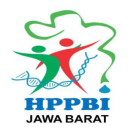Jigsaw Type Cooperative Learning On Student Learning Outcomes In Algae Classification Practicum
DOI:
https://doi.org/10.37150/rebion.v3i1.1624Abstract
Background: The purpose of this study was to obtain information about the effect of jigsaw cooperative learning on students' concept mastery in algae classification practicum. Methods: Quasi experiment with a non-randomized control group pretest-posttest research design with a control class using conventional learning. The research instruments include concept mastery test, questionnaire, and teacher interview. Data analysis was carried out using the Wilcoxon test, and the questionnaire was analyzed by calculating the percentage. Results: The results of the data gain analysis showed that there was a significant effect of the Jigsaw cooperative learning model on students' mastery of concepts. The results of the student questionnaire showed that the implementation of the Jigsaw cooperative learning model received a positive response from the teacher and students.
Keywords : Cooperative Learning; Jigsaw; Concept Mastery; Algae Classification
Downloads
Published
How to Cite
Issue
Section
License
Copyright (c) 2022 Report of Biological Education

This work is licensed under a Creative Commons Attribution-NonCommercial-ShareAlike 4.0 International License.










